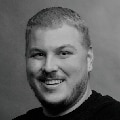Getting to Know our Guest
Could you please introduce yourself in a few words.
I’m a NASA scientist, interested in the history of everything, from the early universe (AKA Big Bang) to the formation of stars, planets, black holes, and galaxies, to the possibilities and history of life here on Earth and elsewhere. I grew up on a research farm of Rutgers University in rural NJ, went to school at Swarthmore and Berkeley, and joined NASA in 1974. My failed graduate student thesis project led to our proposal for the COBE satellite to observe the primordial heat radiation, and then to Stockholm in 2006 for a Nobel Prize. I led the science teams for the James Webb Space Telescope from 1995 to 2023.
Getting Started in Astrophysics
Can you tell us a bit about what sparked your interest in astrophysics and what motivated you to pursue a career in this field?
First it was physics: relativity and quantum mechanics. Then it was a chance to observe the Big Bang. Then it was partial success, and the opportunity to take on a challenge.
Can you recount a specific moment in your career where creative thinking led to a novel solution or perspective in your astrophysics research?
It’s every day, looking for new ways to measure something, from grad school to today.
Getting (Astro)Philosophical!
Astrophysics involves exploring the unknown. How do you infuse creativity into your scientific research and problem-solving processes at NASA?
It isn’t infused from outside, it’s the very essence of science and engineering.
How do you navigate the balance between theoretical astrophysics and experimental approaches, and in what ways does creativity bridge these two aspects in your research?
Theoretical and observational astrophysics tell us what’s important to measure. My creative forces work to find new ways to measure.
Parting Words
Given your role in astrophysics and education, how do you inspire the next generation of scientists to approach astrophysics with creativity and curiosity?
Our beautiful pictures and our stories draw people in because we ask the fundamental questions: who are we, where did we come from, what’s our history? And moreover, we can find out more right now!





